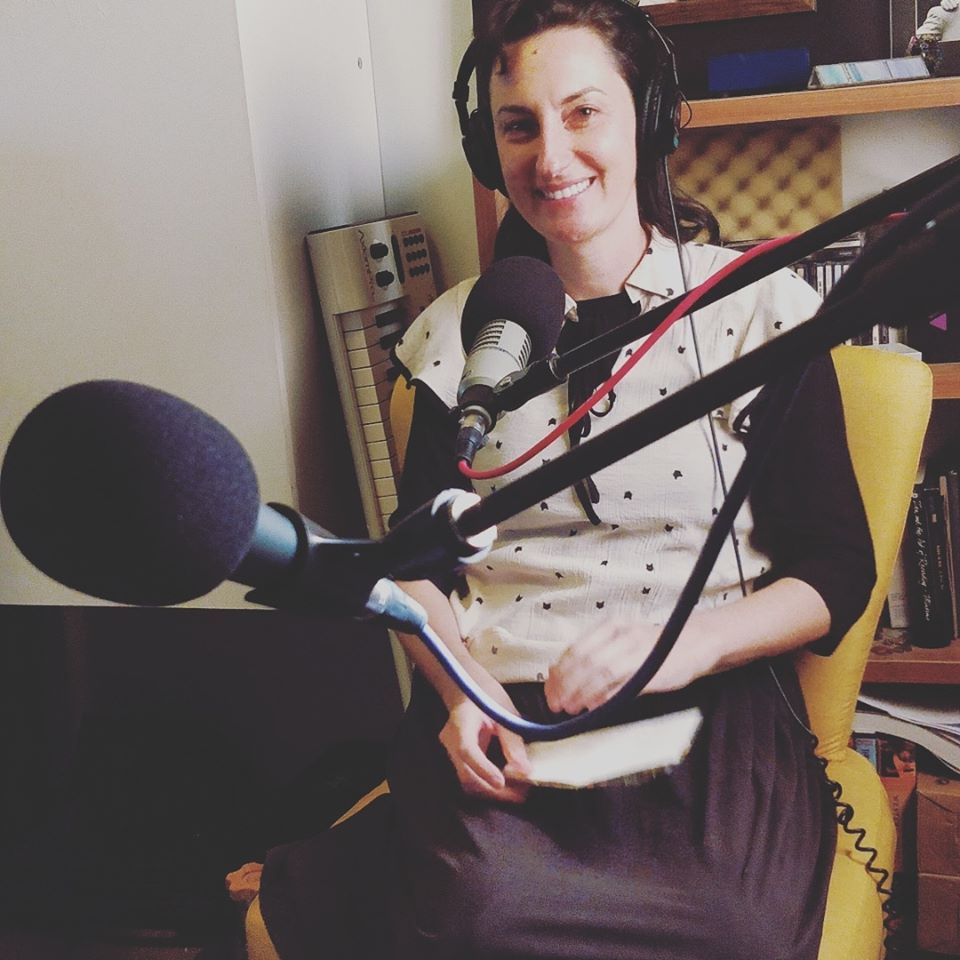I really hate leaving projects hanging in the air which is why — for the past seven months — I’ve had a gnawing itch to resume work on The Borderliners Podcast (wedding planning and the apartment move had other ideas).
Thankfully, today was the day when things were put back in motion.
My co-host Nina Rabinowitz and I convened on Ben Wallick’s gorgeous recording studio to record episode two.
Truthfully, this should be episode three, but — due to technical mishaps, which were entirely my fault — our interview with Aleeza Chanowitz is on a sort of permanent hiatus; the audio quality is adequate but far from optimum, although I am confident we can still get round to publishing it. However, if not, we remain hopeful that we can convince Aleeza to give us a second chance in the not-too-distant future.
I can’t take credit for coming up with the name (that honor goes to Sam Schubert, our first interviewee who actually made it to production), but I can for coming up with the tagline and intro: “we interview the people nobody else wants to. Peripheral characters from the fringes of Israeli society.“
As today’s guest correctly identified, being invited to appear on the podcast is therefore a snub of sorts!
As the intro suggests, the podcast is a kind of irreverent look at English-speaking immigrant society in Israel — and the often unusual, sometimes borderline crazy, individuals that constitute it, including yours truly.
It’s intended to be one part lighthearted comedy and one part fervent journalistic exploration into the issues du jour — such as Jerusalem’s outrageous feral cat population.
We have devised quite an extensive guest list which — broadly speaking — aims to shine a light on sub-cultures in Jerusalem that few people know exist or intersect with.
Among those we have been trying to entice to the show are religious leaders of every denomination, digital nomads, diplomats and UN personnel, energy healers, and a real-life slumlord (we probably need to tinker with the wording of the invitation a little for that one).
Currently, we’re mostly dipping into our extended social networks to find interview subjects, but if you — or a friend — would like to be featured on the show, please drop me a line.
The idea is to investigate those at the border between societies, sanity/genius, religious affiliations, and cultures — and Jerusalem is quite a fitting backdrop on all those counts. (Other podcasts occupying a somewhat similar space are the Jerusalem Rooftop Podcast and Two Nice Jewish Boys).
Working on the podcast — and seeing Ben’s cool recording gear — has been a great experience so far and reminds me of my days in the audio production labs of City University London’s journalism department where I completed my Master’s degree (my masterpiece module piece on intern exploitation in the London fashion industry sadly got lost during my last web hosting migration, although I would love to refer back to it for comparison!).
Although I acquired quite an array of microphones, cables, mixers, and audio interfaces for production, I’m now convinced that sound engineering is really a job better left up to the professionals and I’m probably going to keep the kit for my own use.
Our interview today was with Jessica Leah Taback who (besides working as an aliyah (immigration) advisor at Nefesh b’Nefesh) is also a young cat enthusiast.
As we got into during the interview, the density of stray cats in Jerusalem is apparently “the highest ever recorded anywhere in the world,” (you’ll have to listen to the interview to find out how Prof. Yom Tov got the stat!) and the city has recently begun investing in efforts to curb their population.
We discussed why ‘Taback’ chose to become a ‘cat lady’ (a vocation whose image remains largely one of elderly Mizrahi women tossing pieces of bread from high-rise tenement buildings) at such a relatively young age and while appearing, at least on the outside, to be an otherwise well-adjusted individual.
We also outlined the rough contours of the Jerusalem cat-feeding debate.
While Taback and the (apparently) close-knit cat-feeding community view feeding Jerusalem’s stray cats as an act of human kindness, often developing decade-long personal bonds with the animals they feed, others see them as perpetuating feline overpopulation and supporting some of its not-so-benign effects (cats pray indiscriminately on small animals including birds and lizards; one Times of Israel blogger colorfully described the animals as having ‘innate ‘neuroticism and impulsiveness‘).
Or, more bluntly, as I asked Taback, they want to know would like to know why her and her ilk “choose to remain part of the problem.”
Due to some unsavory developments in our building which I cannot disclose publicly, Ben kindly assuaged my nerves with a shot of bourbon — at 10:00 in the morning — immediately prior to beginning recording. This was after getting about four hours of sleep so if my interviewing is at least somewhat coherent I will be happy. There’s a first time for everything, as they say.
I’ll post an embed of the interview when it’s been published. In the meantime, check out borderlinerspod.com.









